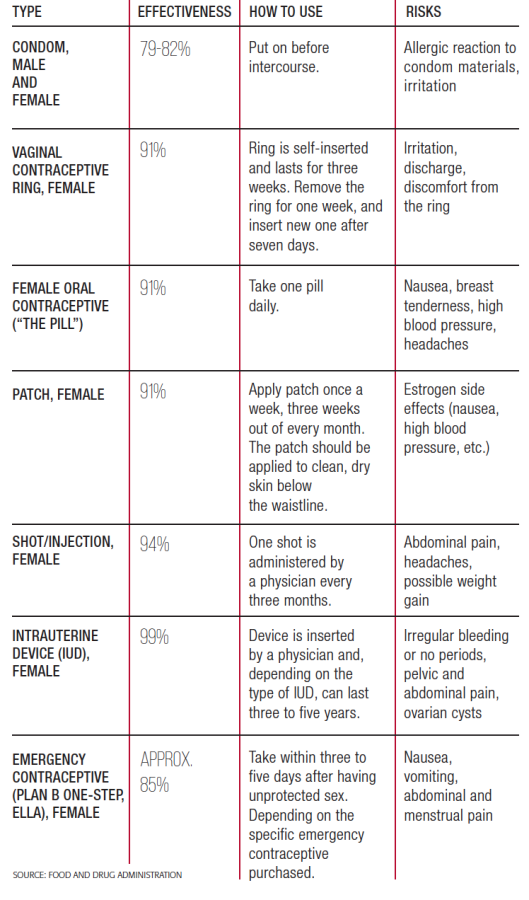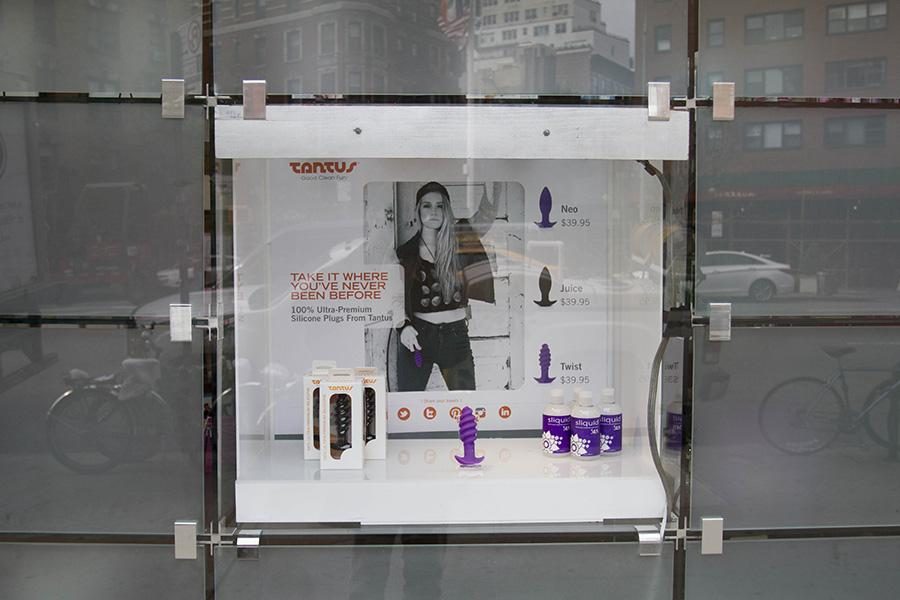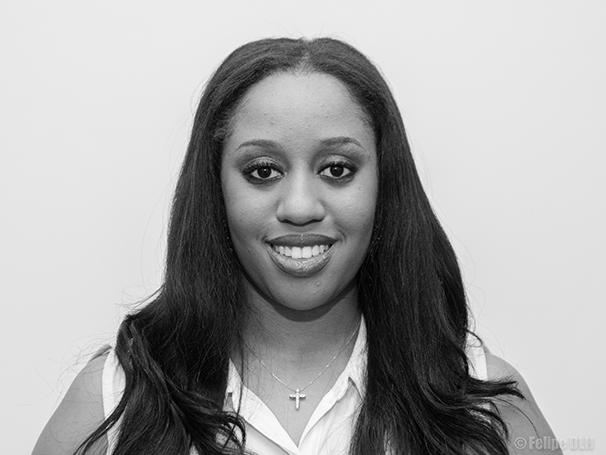LET’S TALK: SEX
September 25, 2014
Sexual assault policy changes imminent
The university will announce new sexual misconduct policies on Sept. 30 that will include redefining consent, increased support services through the newly formed Center for Sexual Misconduct Support Services, a centralized disciplinary process and increased community education and training.
NYU spokesman John Beckman said the shift in national discussions about sexual assault at colleges and an increase in federal action sparked a need to reevaluate NYU’s own policies.
Consent
CAS junior Joe Zelaskowski said consent needs to be clarified on campus for all genders.
“There’s a lot of fear about the ambiguity of what consent is,” Zelaskowski said.
Beckman said the new policy will have a clearer definition of consent that follows federal guidelines.
“It is expected that under the new policy, consent will be defined as an affirmative agreement to engage in specific sexual activity with another person, requiring an outward demonstration, through mutually understandable words or actions that each person is freely choosing to engage in a sexual activity,” Beckman said.
The policy will also explain that consent requires more than just a simple yes from both parties involved.
“It will also be clear that consent cannot be obtained by coercion or given by a person who is incapacitated,” he said.
The current policy does not include language that explicitly defines consent, but says that engaging in a sexual act is consent unless there is an explicit no.
“[Sexual assault includes] sexual contact with someone who is unable to say ‘no’ and/or change his/her mind due to the presence of coercion or intimidation,” the current policy reads.
CAS junior and president of the NYU Feminist Society Meghan Racklin said the affirmation policy is extremely important.
“The wording of consent under the new sexual misconduct policy is a huge improvement over the previous policy,” Racklin said. “Creating a culture of consent is intrinsically tied to creating a culture of healthy sexuality.”
Center for Sexual Misconduct Support Services and Disciplinary Process
Tisch sophomore Emma Howard said she wouldn’t know where to go if she were sexually assaulted.
“There’s no clear hierarchy of who to go to first, and I think a lot of people would just as soon do nothing if they’re not sure,” Howard said.
Students are encouraged to call the Department of Public Safety, the Student Health Center and the Wellness Exchange hotline, the Title IX Coordinator, a staff member of residence life, a dean, another campus official or the Office of Community Standards.
The new Center for Sexual Misconduct Support Services will provide victims of sexual misconduct with additional services including medical and mental health, liaison with law enforcement and assistance with housing accommodations or academic programs.
“We are in the process of hiring a director with expertise in this area,” Beckman said.
The university’s policy on contacting the police will not change. Beckman said the university always discusses contacting the police following an assault.
“We support any student who does choose to involve the authorities — by connecting them with the police, accompanying them and providing transportation and offering support,” Beckman said. “It will continue to be up to the victim to make the decision [to contact police,] unless there is a safety risk.”
Wagner student Katie Radin said universities should ensure that students who commit sexual assault are punished properly.
“The people who commit these sort of things; these are crimes, they should be expelled from campuses,” Radin said.
Beckman said the university’s disciplinary process for all sexual misconduct cases will be handled by the Office of Community Standards by staff with expertise on sexual assault. The cases are currently handled by individual schools, but the university hopes to simplify the process.
There are no standardized punishments for sexual misconduct, however.
“The disciplinary system in NYU evaluates cases on a case-by-case basis,” Beckman said. “It is certainly possible that somebody who was found to have committed sexual misconduct could be expelled from the university, but it’s possible that a panel might [choose] a different punishment.”
Racklin said she would prefer if the disciplinary process was overseen by independent parties.
“This would help eliminate the potential conflict of interest a representative of the university may have in these cases,” Racklin said.
Community Education and Training
Howard said she has seen posters about sexual misconduct around campus, but the university needs to do more.
“They should be doing an active campaign,” she said.
There will be new training programs for various student leaders on campus including resident assistants, Welcome Week leaders, transfer ambassadors, commuter assistants and professional staff. Bystander intervention training will also increase with the new policies. Additionally, a mandatory online education and prevention program for all students will start in January.
Racklin said the online program could easily be ignored by students.
“To truly change the atmosphere on campus, I believe mandatory, continuous education is necessary, and I believe that this education must be comprehensive,” she said.
—
The complete policy will be available to the university and public next week.
“These new policies will not help to battle rape culture on campus unless they are discussed openly and often,” Racklin said. “There needs to be discussion about, and acknowledgement of, rape culture by students.”
A version of this article appeared in the Thursday, Sept. 25 print edition. Email Emily Bell, Nicole Brown and Casey Dalrymple at [email protected].
Guide to birth control
A version of this article appeared in the Thursday, Sept. 25 print edition. Email Dana Reszutek and Hannah Treasure at [email protected].
Toy around in these local sex shops
Walking into a sex shop in Manhattan, one is typically faced with a colorful display of penis-shaped gag gifts. It’s not hard to find sex toys in the city, but not every erotica shop offers the refined experience that puts customers at ease. For those seeking a less intimidating environment to browse paraphernalia, New York presents plenty of affordable, high-quality boutiques to help spice up your sex life. Whether you’re in the market for a new vibrator or just want some helpful information from a knowledgeable staff member, the following boutiques offer all the necessary tools to explore your sexuality.
Babeland
With three locations in New York and famous customers like Jay-Z and Beyoncé, Babeland is easily one of the city’s most popular sex shops. This friendly boutique boasts modern decor and a welcoming staff — a refreshing alternative to the obscure and cluttered erotica shops one usually finds in downtown Manhattan. Babeland offers paraphernalia of all shapes, sizes and materials, allowing shoppers to find the products that best fit their budgets. For the environmentally conscious customer, the store provides a selection of sustainable, eco-friendly sex toys, like the Solar Bullet Vibrator ($34). While Babeland ensures the quality and safety of each item, perhaps the shop’s most appealing aspect is its focus on sex education. The boutique not only provides an impressive selection of books and DVDs, but also hosts a variety of free sex-ed classes. The shop is also ideal for those looking to keep their sex life private on their bills — transactions at Babeland are encrypted and appear as “TIB” on your bank statement.
Lower East Side: 94 Rivington St. SoHo: 43 Mercer St. Brooklyn: 462 Bergen St. babeland.com
The Pleasure Chest
The Pleasure Chest made its TV debut when “Sex and the City” character Charlotte went shopping for her first vibrator. Now, while the boutique is a stop on the SATC New York tour, the Pleasure Chest is a go-to destination for locals seeking new ways to express their sexuality. The shop presents a limited but enticing selection of items, including an array of sexual health products to suit individual needs. While many sex toys come at a steep price, a helpful staff is available to help you find affordable novelties for any occasion. Some of the Pleasure Chest’s bestsellers include the Magic Wand Original ($55) and the Jimmyjane Afterglow Massage Candle ($29). In addition to providing high-quality products, the famed boutique aims to promote sexual growth in the community by offering free workshops and kinky classes like “BDSM for Beginners.”
West Village: 156 Seventh Ave. South, Upper East Side: 1150 Second Ave., thepleasurechest.com
SHAG
In typical Brooklyn fashion, this Williamsburg boutique more closely resembles an indie art gallery than a sex shop. SHAG functions as a retail store, fine art gallery and event space — aiming to unite sex and art to explore sexual boundaries in a comfortable environment. All the classic tools and toys are available, but a considerable amount of SHAG’s inventory consists of original products made by local artists. These items include one-of-a-kind pieces of jewelry and erotic art, as well as a selection of edible treats. Among the notable products are the Marquis De Luna Artisanal Truffles — chocolate confections infused with South American Aphrodisiacs ($14 for four pieces). SHAG also hosts a variety of events for sexual education, though most are pricier than those in other boutiques. However, the shop does offer some fun and affordable options, like the “Everything Butt…” workshop coming up on Oct. 16 ($20 per person, $30 per couple).
Williamsburg: 108 Roebling St. weloveshag.com
A version of this article appeared in the Thursday, Sept. 25 print edition. Email Cicek Erel at [email protected].
Hookup culture needs to grow up
National conversations regarding hookup culture on college campuses have been prone to sensationalism. They are embellished with suggestive headlines and improbable details about fleeting liaisons. While research consistently shows that this perception does not match reality, the recurring chastisement of rampant sexuality is misdirected regardless. More telling than the frequency of casual sex among youth is the attitude surrounding it. According to a survey that examined college students’ sentiments, 41 percent “expressed sadness, regret and ambivalence” the morning after a hookup. Furthermore, several studies show that many students would actually prefer to be physical within the context of a romantic relationship than have a meaningless hookup. Given these findings, students’ rationales for choosing empty sex before dating speaks volumes.
Both collegiate men and women regularly report that they consider relationships to be a distraction from academics, internships, graduate school and career planning. While they may long for true intimacy, the students craft excuses for their active negation of commitment. With female undergraduates outnumbering male undergraduates, some young men say it is no longer necessary to woo their peers to find sexual partners. Conversely, some young women report that their engagement in hookup culture is founded in desire to avoid romantic attachment and belief that commitment could compromise professional opportunities. Former Harvard student Leah Reis-Dennis, who was interviewed for a March 30, 2011 USA Today article impeccably conveyed this resounding sentiment, saying “Hooking up is kind of an easier way for college students to act on their sexual desire without making a big commitment.”
This callous characterization of hookup culture reveals its disingenuous nature. It might be a different situation if these students pursued casual sex after displaying emotional maturity, taking proper precautions and assuming responsibility for any negative consequences. None of these indicators are present in hookup culture. Students instead deliberately avoid romantic relationships because they are terrified of becoming attached to other human beings. Maturity is completely absent from the dynamic. College men and women who have casual sex in this counterproductive fashion shelter themselves from meaningful connections in fear that the relationship could fail, leaving them with an emotional void.
Accompanying this attitude is a failure to recognize that vulnerability is inevitable of any significant bond. Relationships regularly fail, but it is a natural part of interpersonal development. This desperate evasion of companionship can become a self-fulfilling prophecy. Believing that one can suddenly be prepared for a committed relationship or marriage after solely hooking up throughout college, graduate school and a few years of employment is unrealistic. Hookup culture at best denies students the opportunity for emotional maturation — at worst, it irrevocably hinders one’s ability to form substantive connections.
A version of this article appeared in the Thursday, Sept. 25 print edition. Email Christina Coleburn at [email protected].



